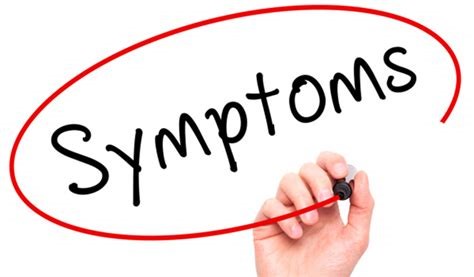
Understanding Excessive Sweating. Here, Sweating is the body’s natural cooling system. And it helps regulate temperature, remove toxins, and maintain healthy skin. But when sweating becomes excessive — soaking clothes, disrupting daily activities, or occurring without heat or exercise — it can be distressing and even embarrassing. Furthermore, this condition is known medically as hyperhidrosis.
A Brief History of Sweating

Understanding Excessive Sweating. So then, the phenomenon of excessive sweating has been noted since ancient times. And greek physicians like Hippocrates described patients who perspired abnormally without heat or exertion. However, modern medicine began studying it seriously in the 19th century when physicians identified overactive sweat glands as the cause. Subsequently, today, we understand that both genetic and neurological factors can influence excessive sweating. But that effective treatments do exist.
What Causes Excessive Sweating?

Understanding Excessive Sweating. For example, excessive sweating may occur for several reasons. Here, the causes fall into two main categories:
1. Primary (Focal) Hyperhidrosis
This type usually affects specific body areas — such as the armpits, palms, soles, face, or scalp.
It often starts early in life and is caused by overactivity of the sympathetic nervous system, which controls sweating.
There is no underlying illness, and it often runs in families.
2. Secondary (Generalized) Hyperhidrosis
This type affects the whole body and is caused by an underlying condition or medication.
Common causes include:
- Menopause – hormonal changes can trigger hot flashes and night sweats.
- Thyroid problems – an overactive thyroid increases metabolism and sweating.
- Diabetes or low blood sugar – cause sweating due to blood sugar fluctuations.
- Infections or fevers – especially tuberculosis or chronic infections.
- Heart or lung disease – can lead to sweating with shortness of breath or fatigue.
- Certain medications – antidepressants, pain relievers, and some blood pressure medicines may increase sweating.
- Obesity – extra weight can cause overheating and sweat overproduction.
- Anxiety and stress – emotional triggers activate sweat glands, especially in social situations.
Symptoms to Watch For

Understanding Excessive Sweating. People with excessive sweating may notice:
- Damp clothing even in cool environments
- Sweaty palms or feet causing discomfort or odor
- Sweat dripping from the face or scalp
- Night sweating despite light bedding
- Skin irritation, fungal infections, or rashes in moist areas
- Emotional distress, embarrassment, or social withdrawal
If these symptoms interfere with your daily life or sleep, it’s time to seek help.
Medical Treatments for Excessive Sweating

Understanding Excessive Sweating. There are several medical approaches depending on the cause and severity:
1. Antiperspirants (Prescription Strength)
Products containing aluminum chloride hexahydrate (such as Driclor or Certain Dri) block sweat glands and are often the first step.
2. Medications
Doctors may prescribe oral medications called anticholinergics (e.g., glycopyrrolate) to reduce sweat gland activity. These must be used under supervision due to possible side effects like dry mouth or constipation.
3. Botulinum Toxin (Botox) Injections
Botox temporarily blocks nerve signals that activate sweating. Results can last 6–9 months, particularly effective for underarms, hands, or feet.
4. Iontophoresis
This is a non-invasive treatment using mild electrical currents passed through water to block sweat production — commonly used for hands and feet.
5. Surgery
For severe, resistant cases, sympathectomy (cutting specific nerves) or sweat gland removal may be considered, though these are last-resort options.
Home and Natural Remedies

Understanding Excessive Sweating. Many people find relief with simple daily adjustments:
1. Choose Breathable Fabrics
Wear cotton, bamboo, or moisture-wicking materials. Avoid synthetic fabrics that trap heat.
2. Maintain Good Hygiene
Regularly bathe and dry affected areas thoroughly. Use antibacterial soaps to reduce odor.
3. Stay Hydrated
Ironically, drinking enough water helps regulate body temperature and prevent overcompensation by sweat glands.
4. Manage Stress and Anxiety
Practices such as deep breathing, yoga, and meditation can calm the nervous system and reduce emotional sweating.
5. Adjust Your Diet
Avoid spicy foods, caffeine, and alcohol — all of which can trigger sweating.
Increase foods rich in magnesium (like spinach, almonds, and bananas), which help balance body temperature and hormone levels.
6. Natural Solutions
- Apple cider vinegar: may help regulate sweat production (a teaspoon in water daily or applied topically).
- Sage tea: a traditional herbal remedy known to reduce perspiration when drunk regularly.
- Witch hazel: a natural astringent that tightens skin and reduces moisture when dabbed on affected areas.
When to See a Doctor

Understanding Excessive Sweating. You should consult a healthcare provider if:
- Sweating began suddenly or severely without clear reason
- You experience night sweats or weight loss
- Sweating interferes with your quality of life
- You develop rashes or infections from constant dampness
Your doctor can identify whether it’s primary or secondary hyperhidrosis, rule out underlying conditions, and suggest the most effective treatment.
Final Thoughts
Understanding Excessive Sweating. Excessive sweating can be frustrating, but it’s a manageable condition. By understanding the underlying causes, using medical treatments when necessary, and applying practical home remedies, older adults can regain comfort and confidence.
If you’re struggling, remember — it’s not your fault, and help is available. Speak to your doctor, make small lifestyle adjustments, and don’t let sweating stop you from enjoying life.
Pensioner Fitness – Helping You Stay Strong, Steady, and Self-Reliant
Pensioner Fitness Awards
THE BUSINESS CONCEPT, BEST IN BUSINESS AWARDS
- “MOST INSPIRING SENIOR WELLNESS WEBSITE 2023“
THE GLOBAL HEALTH AND PHARMA, FITNESS AND NUTRITION AWARDS
2. “BEST SENIOR FITNESS AND NUTRITION SPECIALIST 2023“
THE MIDDLE EAST AND AFRICA BUSINESS AWARDS
3. “ MOST INCLUSIVE FITNESS PROVIDER 2023″
THE CORPORATE LIVE WIRE GLOBAL AWARDS 2023/2024
4. ” FITNESS ADVISORY PLATFORM OF THE YEAR“ 2023/2024
In Conclusion
“While hyperhidrosis isn’t life-threatening, its impact on quality of life can be profound,” “Many people experience social anxiety, isolation, and distress that can prevent intimacy and lead to embarrassment about going out in public.”
If sweating is severe, persistent, or affecting your quality of life, it’s important to talk to a dermatologist or your doctor. There are effective treatments ranging from topical prescriptions to Botox.
Important Note *
Remember that everyone is different, it is ultimately YOUR RESPONSIBILITY to find what your body responds to. So please do your due diligence before trying anything new, including getting Medical Advice to ensure your safety and peace of mind.
Connect with me and leave a com